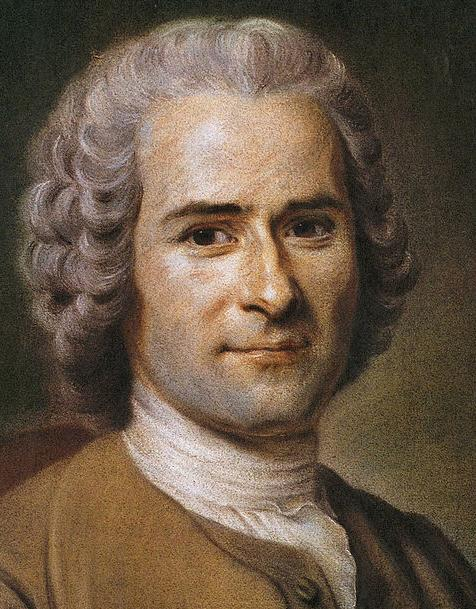Jean-Jacques Rousseau, On the Social Contract

Like Thomas Hobbes and John Locke, Jean-Jacques Rousseau was an Enlightenment era philosopher, political thinker, and social contract theorist. He was born in 1712 (eight years after Locke's death) to a middle class Genevan family, and spent most of his childhood under the apprenticeship of craftsmen around Europe. After a brief stint as a lackey for a wealthy woman in Savoy, who encouraged him to use her library to educate himself in philosophy, math, and music, he left for Paris to present a new system of music notation to the French Academy of Sciences. Although he failed to convince the Academy to approve the new notation, he remained in the city. He then began working for a foreign ambassador, a job he despised. While in Paris, he became involved in the local intellectual scene, contributing an influential article on political economy to Denis Diderot's famous Encycloédie. (The encyclopedia movement is viewed as one of the great projects of the Enlightenment period). Rousseau originally found notoriety with his "Discourse on the Arts and Sciences." Later in his life, Rousseau would move back to Geneva from Paris, where he would publish his most influential works, including Julie, or New Heloise; Emile, or On Education; and the work from which you will be reading an excerpt for Wednesday: "On the Social Contract."
As you read "On the Social Contract," try to keep in mind the views of Hobbes and Locke regarding human nature. Contrast these views to those of Rousseau. As with previous social contract theorists, this view of human nature will inform Rousseau's understanding of social contracts. Pay close attention to how this transition is made, and especially how it contrasts with the similar transitions made by Hobbes and Locke.